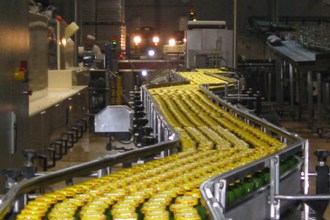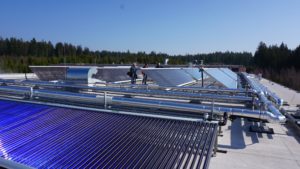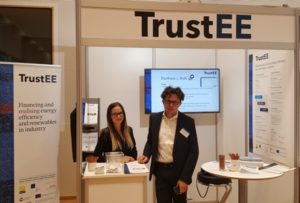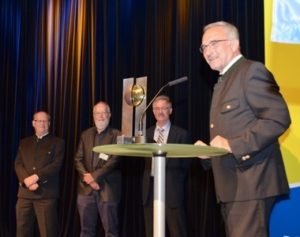Austria: Solar Foods Project Researchers Develop Tool to Optimise Processes
February 24, 2012
 During the on-going Solar Foods project, researchers from Austria are developing software to help integrate solar heat into the food and beverage industry. The software will not only show mass and heat flows in a diagram, but also help optimise them to improve energy efficiency and find the best way to establish solar heat in this sector. The project is financed by the Austrian Klima- und Energiefonds. It started in March 2011 and will run one more year. The photo shows a typical bottling plant.
During the on-going Solar Foods project, researchers from Austria are developing software to help integrate solar heat into the food and beverage industry. The software will not only show mass and heat flows in a diagram, but also help optimise them to improve energy efficiency and find the best way to establish solar heat in this sector. The project is financed by the Austrian Klima- und Energiefonds. It started in March 2011 and will run one more year. The photo shows a typical bottling plant.
Photo: AEE INTEC
The researchers are currently gathering data on the energy and mass flows present in the processes of ten participating companies from the food industry. “Data acquisition is the most labour-intensive part of the project,” says Christoph Brunner from research institute AEE INTEC, one of the project partners. The companies under analysis include dairy and meat processing plants, plants to bottle soft drinks, producers of sweets, and business which process vegetables and fruits.
Solar Foods is not the first research programme of its kind in Austria. It partly continues the work of the Green Breweries programme (from 2008 to 2009), which developed guidelines to significantly reduce a brewery’s energy demand and integrate renewable energies into the production process. One of the results of the Green Breweries programme was an Excel-based tool which helps breweries to analyse their processes and find out how solar heat can reduce their consumption of fossil fuels. “As all breweries employ, in principle, a similar process, values can be calculated based on an Excel sheet. But now that we want to apply the calculation to other food and beverage segments, we need more flexible software,” Brunner says.
The Solar Foods programme will enable a more detailed analysis than Einstein developed in 2008. Einstein, a software tool that can be downloaded free of charge on the web, is more suitable for a quick overview than a comprehensive analysis.
According to Brunner, Solar Foods also goes beyond the EU programme So-Pro in this regard. “So-Pro picks out several examples, such as pre-heating of feed water or drying processes, and focuses on the solar part. Solar Foods wants to develop a tool which allows someone to analyse the entire production process,” Brunner explains. The analysis can be relatively easy, e.g., in a bottling company for mineral water, at which heat is only required during some cleaning processes. Or, it can be very complex, such as in a brewery or a dairy processing plant, at which heat is required at many different temperature levels and at which there is already a complex network of heat recovery in most cases. “If you change one heat exchanger to improve a single process, it will end up affecting the whole system,” Brunner says.
In addition to the software, the researchers are also working on a set of guidelines, explaining to the industry how to save energy, integrate renewables and reach CO2 saving targets. Relevant data and guidelines will as well be published on the Wiki Web Efficiency Finder, which has already shown useful and practical information on how to improve energy performance and integrate solar heat into new production processes. Together with the software, the guidelines and the database form a so-called branch concept, demonstrating to the industry how to ‘go solar’ by 2020/2030.
As for the software, it has not been decided yet how it will be used after the project. It seems unlikely that the programme will be ready for commercial sale within just two years of project time. But it could be made market-ready until after the programme has ended and then sold by one or several of the parties involved.
More information:
Contact Christoph Brunner (AEE Intec): c.brunner@aee.at
Wiki Web Efficiency Finder: http://wiki.zero-emissions.at/index.php/EFFICIENCY_FINDER
Solar Foods Homepage (German only): http://www.solarfoods.at
So-Pro (EU Project on process heat): http://www.solarthermalworld.org/node/3186


